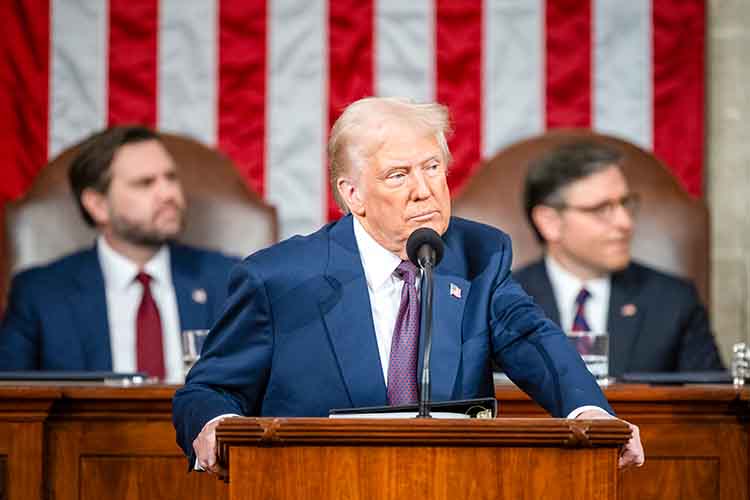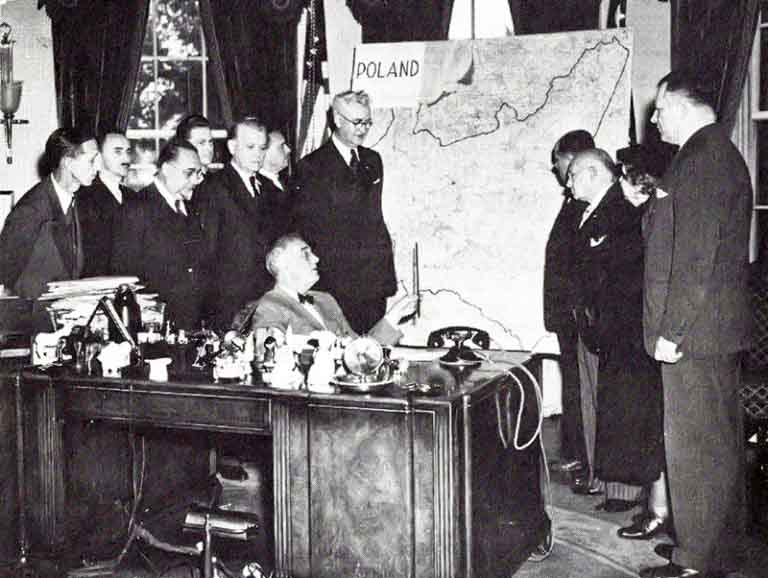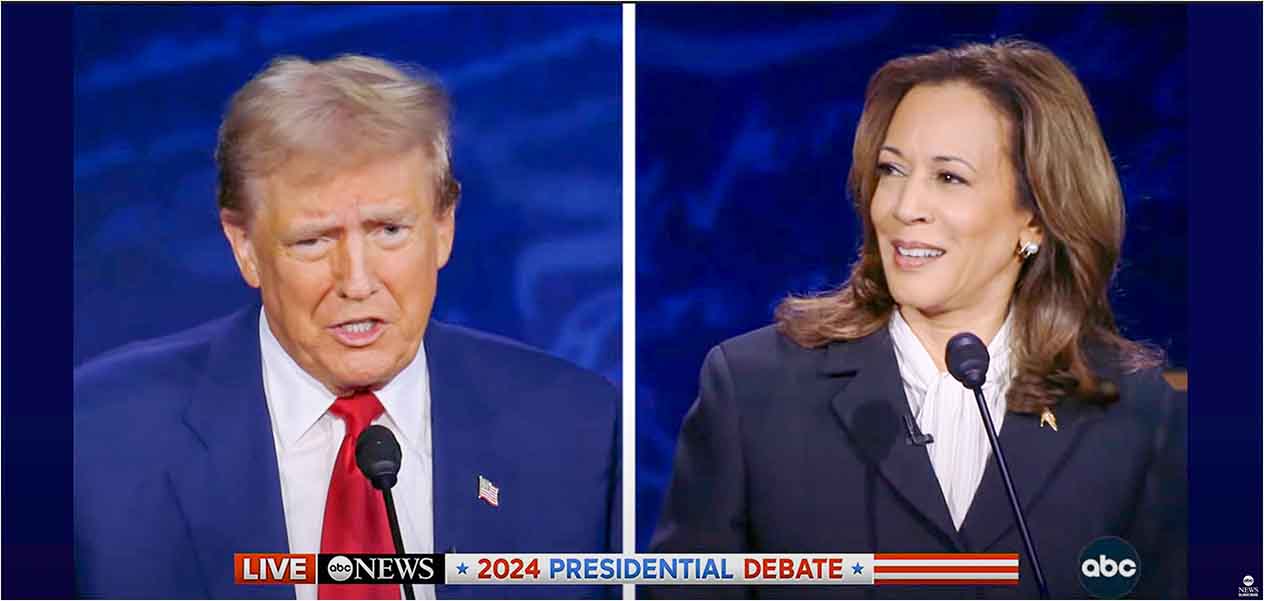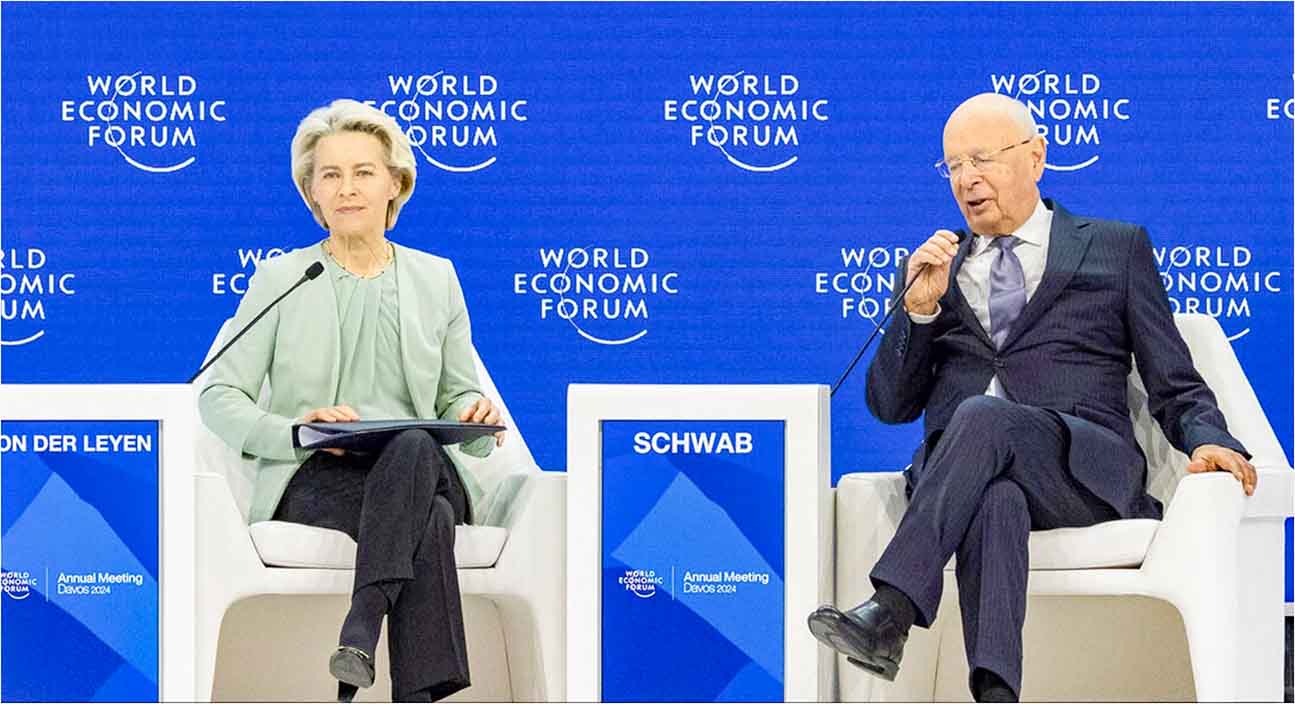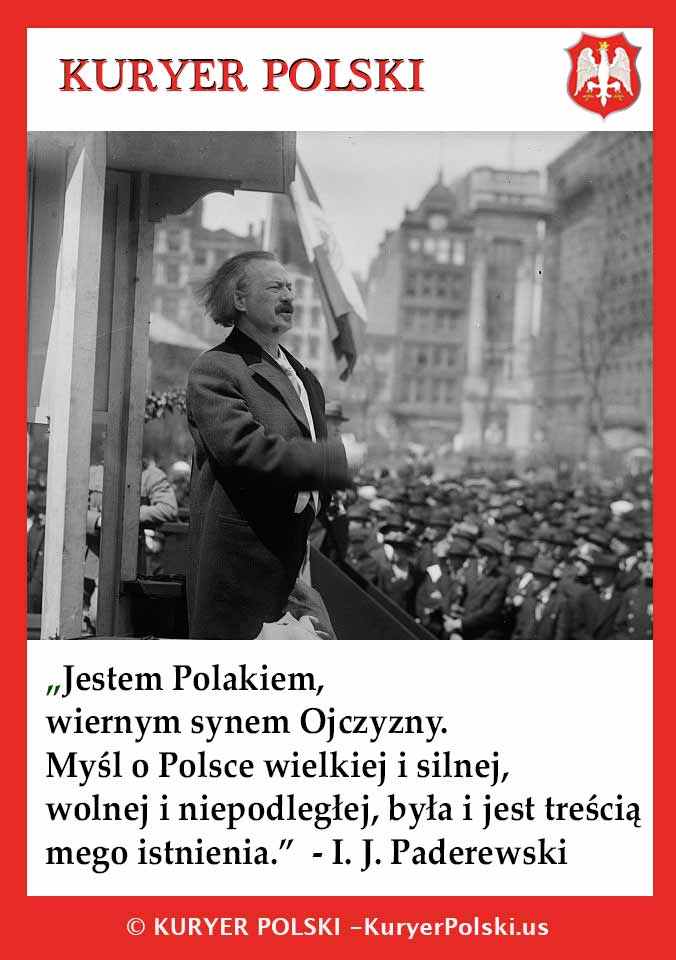I am writing this text from the headquarters of Kuryer Polski in Milwaukee, in the United States, the first daily newspaper, founded in 1888. It was founded by my countryman Michał Kruszka. He said then: "Kuryer Polski represents Polish interests in America." In my text, I would like to address three issues: the American elections, in which the American Polonia played a key role, why the Democrats lost the presidential elections, and what we as a Polish state should prepare for in the current, dramatically changing geopolitical situation.
Why Did the Democrats Lose?
One of the most left-wing politicians in the United States, Bernie Sanders, expressed this perfectly. He said directly that "Democrats have abandoned the working class, which was their most important electorate. Initially it was the white working class, and then Latinos and African-Americans joined them." Developing this thread, one could say that the Democratic oligarchs earning millions of dollars have abandoned the American working class in favor of celebrities of all kinds, who operate in a world that has nothing to do with reality.
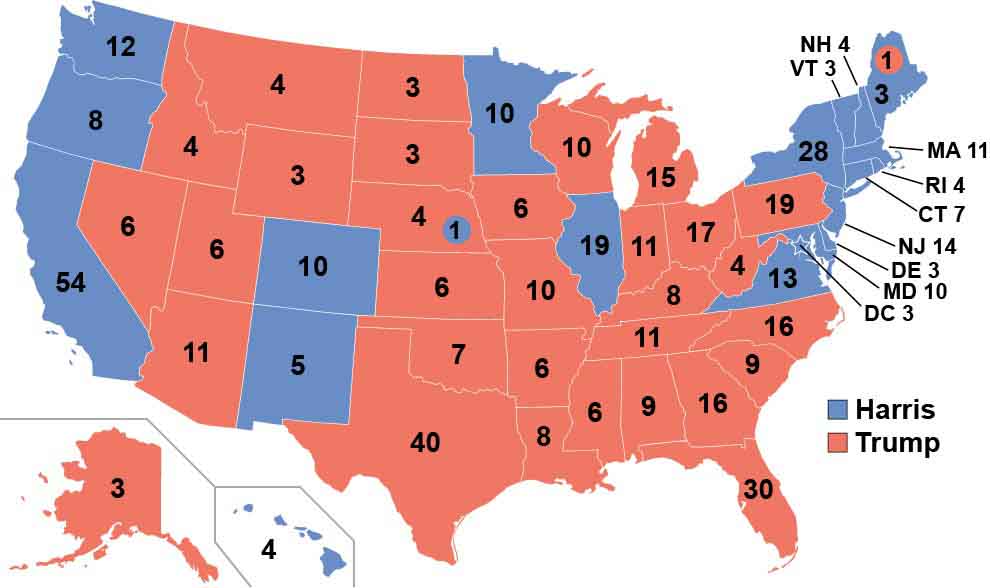
2024 Electoral College Votes. (Source: Wikipedia)
Driving through the streets of Milwaukee, you can still clearly see the closed factories that provided work for generations of families, including many Polish-Americans. They were the ones who built America before and after World War II, implementing Roosevelt's "New Deal" at the time, giving the working class the opportunity to develop and realize the American dream, which consisted of popularizing the model of owning one's own home, a car, and the possibility of providing education for their large families, with the housewife staying at home. In addition, the New Deal included legal reforms that stabilized the economy, institutions that stimulated the economy and fought unemployment, the introduction of universal social welfare, programs for the arts, aid for farmers, municipal housing, the introduction of labor law, programs for the protection of nature, and others as a plan to combat the effects of the Great Depression.
Today, the Democratic administration does not have such a vision of the country's development, and uncontrolled emigration from the south, with the border wide open, through which terrorists, criminals, mafiosi and tons of drugs killing young Americans have penetrated into the United States, has led to an increase in crime in large cities and a constant lowering of arrest requirements for petty thieves, with the rule that if the theft did not exceed $1,000, there was no crime.
Statistics remained at a mild level and many local democratic politicians even boasted about the decrease in crime in their large cities. To win elections, it is not enough to smile, you need to have a credible program and a vision of the country's development, which must be communicated effectively. This remark also applies to Polish elites.
Wisconsin, Michigan and Pennsylvania
There is a beautiful song by Marian Hemar and Maria Modzelewska entitled "Pennsylvania". "We were first in love, In that beautiful time when the lilacs were blooming in Pennsylvania".
By my house in Milwaukee, white lilacs are still blooming, although today this region from Pennsylvania to Wisconsin is called, unromantically, the Rust Belt. This region is home to the largest number of the 10 million American Poles who effectively contributed to the decisive victory of the Republicans and Donald Trump. The candidates themselves and the media in the United States have talked a lot about it.
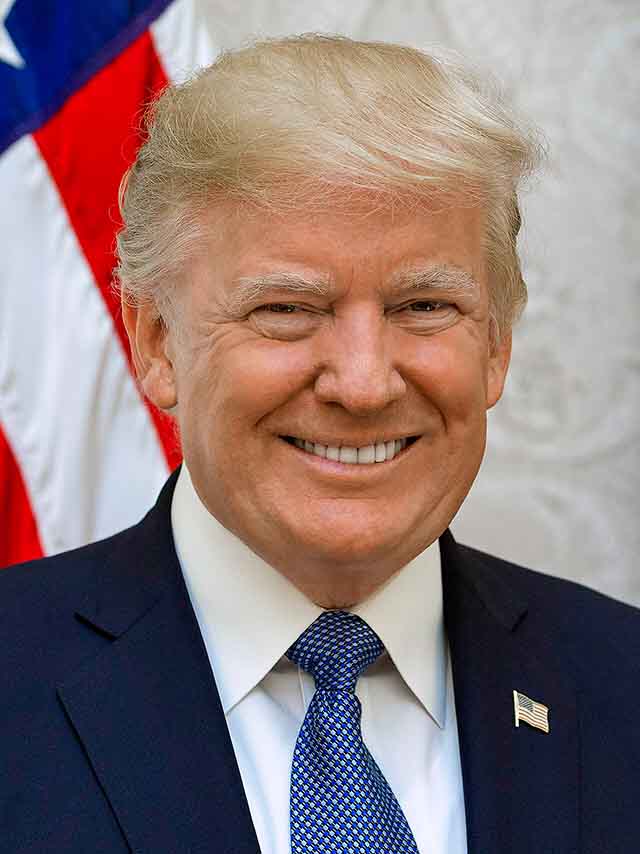
President and President-elect Donald Trump (Source: Wikipedia)
Unfortunately, the media in Poland has never done any material with representatives of the Polish American community. They have even conducted absurd polls on how Poles would vote if they lived in America, completely disregarding the 3% of the American population, most of whom live in the Rust Belt.
The American Polish diaspora is a serious, unorganized political force in the United States that has a significant influence on American politics, as this presidential election clearly showed. However, since 1989, Polish governments have not reached out to Polonia. Sometimes one gets the impression that Polish elites, especially after 2019, have deliberately stopped talking about and dealing with Polonia, creating an idiotic narrative that Polonia is at odds with it and nothing can be achieved with it, as if everyone in Poland has always loved each other. The bureaucratic Polonia machine in Warsaw, with its truly Byzantine organizations, gives us change for hołubce, folk costumes and Saturday schools, completely neglecting American universities, public libraries and various institutions that could help promote Poland in the USA.
You don't need to do any research to come to the simple conclusion that Polishness in the US is definitely shrinking. There are no more Saturday schools or Polish parishes in Wisconsin. In Milwaukee, at UWM, no one teaches Polish or Polish history. The last Polish veteran, Col. Leonard Jędrzejczak - a participant in the Battle of Monte Cassino, like me - a Bydgoszcz resident - left for eternal guard two years ago.
Maj. Gen. Ernest Litynski - commander of the National Guard in Wisconsin never arouses interest among Polish diplomats from Chicago, although he speaks excellent Polish and is keenly interested in Polish affairs. Polish organizations are mainly concerned with promoting the obituaries of their members. In the absence of a vision of maintaining Polishness in the USA, the question arises: does the American Polonia still have any important goals for Poland to fulfill?
It is necessary to realize that if we continue to ignore the American Polonia, in 15 years it will no longer exist. When analyzing the financial documents of the funds spent on the Polonia, it turns out that the Polish taxpayer invests in European organizations and, for moral reasons, in Poles in the East. However, strategically for 90% of American Poles who no longer speak Polish, almost nothing was spent. This requires immediate correction.
Polish Interests in the United States — The Potential of the Polonia
Today, around 20 million people of Polish origin live outside Poland, including 10 million in the US. These are people who left the country or were born outside Poland, but declare attachment to Polish origin and ties to Polishness. The Polish diaspora is the fifth largest group in OECD countries. Over a quarter of Polish emigrants (28.8%) are people with higher education.
Initial estimates indicate that in the United States alone there are over 800 Polish scientists at the tenure level, or American habilitation. This is a serious group of people with enormous intellectual potential that cannot be underestimated. There is no serious research on how many Polish emigrants have both Polish and American educations. In my experience, this is a serious group numbering in the hundreds of thousands.
The financial resources of the American Polonia, according to the Polish-Slavic Credit Union, amount to savings of an average of $17,500 per person. And these are only the savings of a selected group of 100,000 Polonia from the New York, New Jersey and Chicago areas. It is enough to multiply these amounts to obtain the astronomical sum of $1,750,000,000. Let us recall that the entire Polish diaspora in the USA is about 10 million people.
Every year, the Polish diaspora in the United States – not to mention those in other countries – sends about $900 million to Poland (World Bank data, prepared by the Migration Policy Institute). These funds are comparable to those invested here by foreign companies.
Who in the US Should Lobby for Poland?
If we think that President Trump and the Republicans are a sufficient guarantor of Poland's security, then we are stuck in a serious mental trap. For the United States, only the American interest counts. It is worth remembering who signed the famous Act 447 and who did not financially support the Three Seas Initiative. If we assume that the essence of building security for Poland is the alliance with the United States and our presence in the North Atlantic Alliance, then this is a good assumption, provided that we ourselves, as Poles, will build the strength of the Polish state, its army and the infrastructure necessary for the development of Poland in the form of highways, high-speed railways, CPK, transshipment ports, developing the arms industry and creating development opportunities for the young generation.

Centralny Port Komunikacyjny (CPK, Central Communication Hub) – a vision (Source: CPK.pl)
The policy of strengthening the alliance and the policy of strengthening the American presence in Europe, and in particular on the eastern flank of NATO, is still the Polish raison d'état. And the guardian of this policy in the USA, apart from Polish diplomacy, should be the cooperating Polish American community. We do not yet know the plans of the new administration and whether the eastern flank will be an important element of American foreign policy. What Polish interests could the Polish lobby secure if it existed?
In the United States, about 10 million American citizens still voluntarily identify as Polish ethnic groups, which is significantly more than the group of American Jews, who are estimated at 7.6 million US citizens. The difference, however, is that it is the government of Israel that encourages its diaspora to act, and not just declaratively. In order to ensure this, however, it cannot be done on the basis of empty slogans such as: "Polonia is the best ambassador for Poland". Polonia needs specific tools to achieve the strategic goals of the Polish state.
The most important of these is professional, Polish, English-language television broadcasting from Poland. Investment in Polonia media and their strategic networking are necessary. An example of such a medium is Kuryer Polski, as a bilingual portal emerging in the US that reaches Americans of Polish descent, the global Polonia and Poles in Poland. These cannot be media guided by any partisan narrative. They must be bilingual media for all American Poles - and for Americans - that would present the Polish raison d'état, Polish history and culture and - most importantly - the development of the Polish economy, talking about investment opportunities in Poland, in a non-partisan manner.
A network of multilingual Polonia media strategically connected in countries important for Poland is an important step that no one talks about. Why do we, descendants of the Chodkiewiczes, Sobieskis and others, lag behind Hungary so far? In 2013, Hungary established the "Hungary Foundation" in the US, which trains Hungarian elites in American think tanks.
Let's establish, like the Hungarians here in the US, a foundation that would support the building of a pro-Polish lobby. Let's hire the best specialists from the US, Canada and Poland. Let it be the "Polska Team", a team of professionals speaking and writing in English and Polish, who would be able to build such an integrated network of Polonia media and organizations. By making this investment, we could restore the former importance of pro-Polish lobbying in the US for decades.
It is time to wake up. It is time to train leaders and future American politicians of Polish descent. The American Polonia must once again introduce its representatives to the Congress and Senate of the United States. It must have its governors, state representatives, mayors and other important representatives in American government agencies.
It is also a fact that American Poles work at lower levels of the American administration. However, in order to advance, they need a political springboard that could promote them.
The end of the conflict in Ukraine, as analysts say, is near. What will the Americans do? Will they abandon the eastern flank or entrust the leadership of Europe to the Germans? In order for this not to happen, it is worth asking ourselves this question today: shouldn't we, Poles, have a group similar to AIPAC in the United States?
More on this topic: "Paderewski Institute, Time for the Efficiency of Polish Lobbying."








